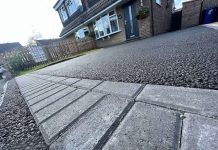As of 1 October, gas and electricity bills are set to increase further as a new energy price cap is introduced. It is estimated that this will mean around 18 million people will see their energy bills increase by £530 a year — this equates to an increase of 27%.
Folks looking to move or buy a new property will be factoring in the energy efficiency of a home when it comes to negotiating a price. With house prices still high in the UK, and interest rates set to go up, people will be looking to cut costs where they can.
So, now more than ever, people will be looking for ways to make their homes more energy efficient so that they won’t be hit as hard by soaring energy prices.
In this article, we’ll take a look at which changes you can make that will have a meaningful impact on the energy efficiency of your home.
How can I make my home more energy efficient?
We’ll run through 10 things you can do to your home to improve its energy efficiency. Below this, we’ll also cover some small changes you can make to save on energy expenses. So, let’s get started!
1. Perform an energy audit
If you’re not sure where to start when it comes to making your home more energy efficient, you may want to consider hiring a professional energy auditor to assess your property. They will be able to evaluate it and provide you with specific ways to adapt your home that will help you save on your energy bills in the long term. Usually, an auditor will charge by the hour or by the square footage of the property.
2. Install solar panels
Although not the cheapest option, solar panels are an investment that will help save you money on your energy bills over time.
The cost of installing solar panels ranges from around £2,500 to £9,000, depending on how many panels you want to install and where you live. However, adding a 4.2 kilowat-peak system to a standard household can reduce annual bills by between £210 and £514.
3. Add wall insulation
The UK has some of the oldest and leakiest housing stock in Western Europe. This means UK houses are some of the hardest to keep warm due to the fact that heat leaks out of walls, doors, and windows shortly after being emitted from radiators. Furthermore, uninsulated homes lose more than a third of their heat through their walls.
For this reason, adding proper insulation to your home’s walls is one of the best ways to make it more energy efficient. To do this, you’ll need to know what type of walls your home has so you can choose the right method of insulating.
4. Look for energy-efficient appliances
Having inefficient appliances in your home can add £490 to your energy bills. On the flip side, swapping your old appliances for more efficient ones can actually reduce this to £154, which is a saving of £366 a year. Over the course of ten years, that’s over £3,360 you could save.
5. Install insulation in your loft
According to the Energy Saving Trust (EST), around 25% of the heat emitted from your boiler will escape through the roof of your property. So, adding loft insulation is one of the best ways to make your home more energy efficient — and it’s inexpensive and easy to do!
Most homes will benefit from loft insulation that is a minimum of 270mm thick. But like with most methods of insulation, how you install it in your home will depend on the type of roof you have.
6. Upgrade windows and doors
18% of heat loss occurs through windows, meaning even more wasted energy throughout your home. And despite leaky windows and doors accounting for the least heat loss in your home compared to your walls and roof, it’s definitely worth remedying.
In fact, switching from single to double glazing could save you the following each year:
| Window energy rating | Detached | Semi-detached | Mid terrace | Bungalow | Mid-floor flat |
| A rated | £120-£155 | £80-£111 | £65-£85 | £55-£75 | £40-55 |
| B rated | £110-140 | £75-£100 | £60-£80 | £50-£70 | £35-£55 |
| C rated | £105-£135 | £75-£95 | £60-£75 | £50-£65 | £35-£50 |
(Gov.uk)
7. Use low-carbon heating
Upgrading to a new heating system isn’t realistic or affordable for everyone. However, if you’ve worked on the rest of your home to insulate it and you’re still looking for more ways to make it more energy efficient, you’re ready to consider the way in which you heat it.
If you’ve made your home more energy efficient by insulating it properly, you will need to take into account the lower heat demand. When you opt for a new heating system, it should suit the size and energy efficiency of your home. As a result of needing less energy to heat your home, a new heating system will be cheaper to install and run.
8. Insulate your hot water cylinder and pipes
Your boiler will be more effective at providing hot water for your taps and radiators if less heat escapes along the way. This heat loss mainly happens from the water tank and pipes, so an easy and cost-effective way to solve this issue is to add a cylinder jacket (at least 80mm thick) over your water tank and cover accessible water pipes with foam tubes.
9. Add floor insulation
Heat loss for all flooring is around 10% which is another chunk of your home’s heat that is being wasted. While you won’t usually need to insulate the upper floors in your house, it is beneficial to insulate rooms that sit above unheated areas, such as rooms above a garage.
As previously mentioned, you’ll need to know what type of floors you have so you can select the right type of insulation. For example, if you have concrete floors, you should be able to install a layer of rigid insulation on top of it.
10. Check your heating system works properly
If your heating system is not working properly, it will be less efficient, and it will cost you more to heat your home. You’re also more likely to use portable heaters, which are more expensive to run. It’s also worth remembering the longer you leave an issue, the more it may cost you later down the line to fix it.
What are some low-cost ways to make my home more energy efficient?
Understandably, not everyone can afford to make significant changes to their homes to make them more energy efficient. For this reason, we’ll also run through some low-cost changes you can make to your home.
Budget ways you can make your home more energy efficient include:
- Stop leaving electric devices on standby: it’s estimated that you could save around £40 a year by turning off your electronic devices at the plug. This is because they will use energy when on standby.
- Switch to LED bulbs: LED bulbs use up to 90% less energy than conventional halogen bulbs so switching your old lightbulbs can make your home more energy efficient.
- Lower your thermostat: turning down your thermostat by only 1-degree celsius can cut your energy bills by up to 10%.
- Install low-flow showerheads: regular showerheads put out around 5 gallons of water per minute (gpm), whereas low-flow ones have an average output of 2.5 gpm. Switching your showerhead to a low-flow one means you have less water to heat, and therefore, they’re more energy efficient.
- DIY draught-proofing: ventilation is important to avoid mold, however, uncontrolled draughts waste heat and energy. You can easily fix this issue with some inexpensive products that seal your doors and windows.







